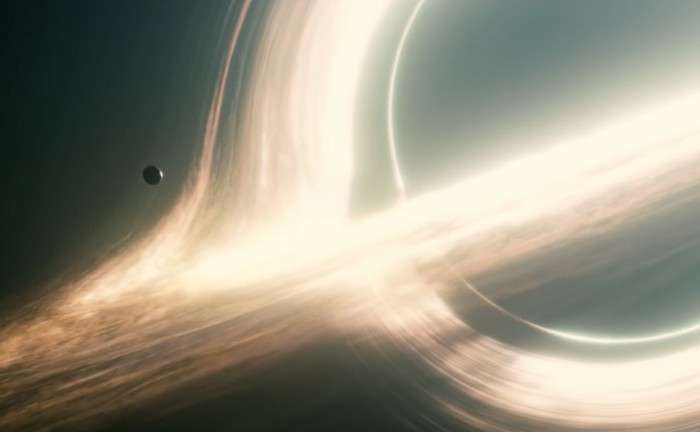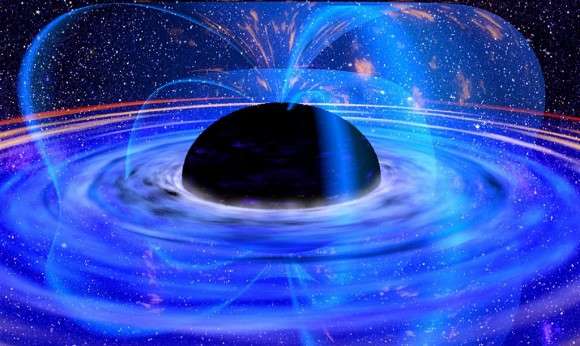If you're going to fall into a black hole, make sure it's rotating

It's no secret that black holes are objects to be avoided, were you to plot yourself a trip across the galaxy. Get too close to one and you'd find your ship hopelessly caught sliding down a gravitational slippery slope toward an inky black event horizon, beyond which there's no escape. The closer you got the more gravity would yank at your vessel, increasingly more on the end closest to the black hole than on the farther side until eventually the extreme tidal forces would shear both you and your ship apart. Whatever remained would continue to fall, accelerating and stretching into "spaghettified" strands of ship and crew toward—and across—the event horizon. It'd be the end of the cosmic road, with nothing left of you except perhaps some slowly-dissipating "information" leaking back out into the Universe over the course of millennia in the form of Hawking radiation. Nice knowin' ya.
That is, of course, if you were foolish enough to approach a non-spinning black hole. Were it to have a healthy rotation to it there's a possibility, based on new research, that you and your ship could survive the trip intact.
A team of researchers from Georgia Gwinnett College, UMass Dartmouth, and the University of Maryland have designed new supercomputer models to study the exotic physics of quickly-rotating black holes, a.k.a. Kerr black holes, and what might be found in the mysterious realm beyond the event horizon. What they found was the dynamics of their rapid rotation create a scenario in which a hypothetical spacecraft and crew might avoid gravitational disintegration during approach.
"We developed a first-of-its-kind computer simulation of how physical fields evolve on the approach to the center of a rotating black hole," said Dr. Lior Burko, associate professor of physics at Georgia Gwinnett College and lead researcher on the study. "It has often been assumed that objects approaching a black hole are crushed by the increasing gravity. However, we found that while gravitational forces increase and become infinite, they do so fast enough that their interaction allows physical objects to stay intact as they move toward the center of the black hole."

Because the environment around black holes is so intense (and physics inside them doesn't play by the rules) creating accurate models requires the latest high-tech computing power.
"This has never been done before, although there has been lots of speculation for decades on what actually happens inside a black hole," said Gaurav Khanna, Associate Physics Professor at UMass Dartmouth, whose Center for Scientific Computing & Visualization Research developed the precision computer modeling necessary for the project.
Like science fiction movies have imagined for decades—from Disney's The Black Hole to Nolan's Interstellar—it just might be possible to survive a trip into a black hole, if conditions are right (i.e., you probably still don't want to find yourself anywhere near one of these.)
Of course, what happens once you're inside is still anyone's guess…
More information: Lior M. Burko et al. Cauchy-horizon singularity inside perturbed Kerr black holes, Physical Review D (2016). DOI: 10.1103/PhysRevD.93.041501
Journal information: Physical Review D
Source: Universe Today




















